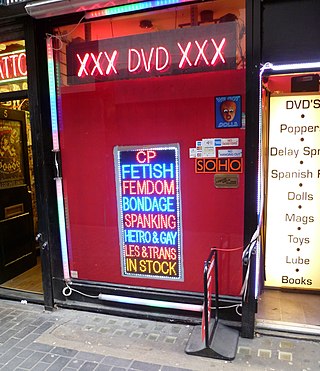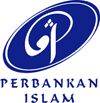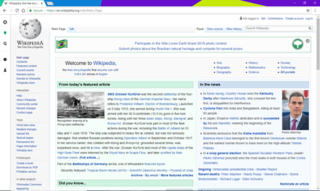Fiqh is Islamic jurisprudence. Fiqh is often described as the human understanding and practices of the sharia, that is human understanding of the divine Islamic law as revealed in the Quran and the Sunnah. Fiqh expands and develops Shariah through interpretation (ijtihad) of the Quran and Sunnah by Islamic jurists (ulama) and is implemented by the rulings (fatwa) of jurists on questions presented to them. Thus, whereas sharia is considered immutable and infallible by Muslims, fiqh is considered fallible and changeable. Fiqh deals with the observance of rituals, morals and social legislation in Islam as well as economic and political system. In the modern era, there are four prominent schools (madh'hab) of fiqh within Sunni practice, plus two within Shi'a practice. A person trained in fiqh is known as a faqīh.
Within the Muslim world, the general attitude towards LGBT people varies, but is largely negative. The Quran mentions the "people of Lot" and, echoing the narrative of the Hebrew Bible, describes how God destroyed the cities of Sodom and Gomorrah because of their residents' engagement in homosexual acts. However, modern historians from the Western world have asserted that Muhammad, the main Islamic prophet, never forbade homosexual relationships outright, although he disapproved of them in line with his contemporaries. At the same time, "both the Quran and the hadith strongly condemn homosexual activity" and some hadith advocate the death penalty for people who engage in any homosexual acts. To this end, anything other than heterosexual activity — chiefly vaginal intercourse between a biological man and a biological woman — is eligible for punishment under Islamic law.
Islamic banking, Islamic finance, or Sharia-compliant finance is banking or financing activity that complies with Sharia and its practical application through the development of Islamic economics. Some of the modes of Islamic banking/finance include Mudarabah, Wadiah (safekeeping), Musharaka, Murabahah (cost-plus), and Ijara (leasing).

A sex shop is a retailer that sells products related to adult sexual or erotic entertainment, such as sex toys, lingerie, pornography, and other related products.

Halal is an Arabic word that translates to 'permissible' in English. In the Quran, the term halal is contrasted with the term haram. This binary opposition was elaborated into a more complex classification known as "the five decisions": mandatory, recommended, neutral, reprehensible and forbidden. Islamic jurists disagree on whether the term halal covers the first two or the first four of these categories. In recent times, Islamic movements seeking to mobilize the masses and authors writing for a popular audience have emphasized the simpler distinction of halal and haram.

Islamic banking in Malaysia began in September 1963 when Perbadanan Wang Simpanan Bakal-Bakal Haji (PWSBH) was established. PWSBH was set up as an institution for Muslims to save for their Hajj expenses. In 1969, PWSBH merged with Pejabat Urusan Haji to form Lembaga Urusan dan Tabung Haji.
Sukuk is the Arabic name for financial certificates, also commonly referred to as "sharia compliant" bonds. Sukuk are defined by the AAOIFI as "securities of equal denomination representing individual ownership interests in a portfolio of eligible existing or future assets." The Fiqh academy of the OIC legitimized the use of sukuk in February 1988.

The Dubai Islamic Bank (DIB) is an Islamic bank in Dubai, established in 1975 by Saeed Bin Ahmed Lootah. It is the first Islamic bank in the world to have incorporated the principles of Islam in all its practices and is the largest Islamic bank in the United Arab Emirates.
Murabaḥah, murabaḥa, or murâbaḥah was originally a term of fiqh for a sales contract where the buyer and seller agree on the markup (profit) or "cost-plus" price for the item(s) being sold. In recent decades it has become a term for a very common form of Islamic financing, where the price is marked up in exchange for allowing the buyer to pay over time—for example with monthly payments. Murabaha financing is similar to a rent-to-own arrangement in the non-Muslim world, with the intermediary retaining ownership of the item being sold until the loan is paid in full. There are also Islamic investment funds and sukuk that use murabahah contracts.

Asira ash-Shamaliya is a Palestinian town in the Nablus Governorate, located 3.5 kilometers north of Nablus in the northern West Bank. According to the Palestinian Central Bureau of Statistics, the town had a population of approximately 8,813 inhabitants in 2017.
A Sharia Board certifies Islamic financial products as being Sharia-compliant. Because compliance with Sharia law is the underlying reason for the existence of Islamic finance, Islamic banks should establish a Sharia Supervisory Board (SSB) to advise them on whether their products comply, and to ensure that their operations and activities comply with Sharia principles. There are also national Sharia boards in many Muslim majority countries that regulate Islamic financial institutions nationwide.
Banking or banking activity that complies with Sharia —known as Islamic banking and finance, or Sharia-compliant finance—has its own products, services and contracts that differ from conventional banking. Some of these include Mudharabah, Wadiah (safekeeping), Musharakah, Murabahah, Ijar (leasing), Hawala, Takaful, and Sukuk.

Abdur Rahman Chatgami, also known as Faqihul Millat, was a Bangladeshi Islamic scholar of the Deobandi school. He was born in Imam Nagar, Fatikchhari, Chittagong, in 1920. He was the founder director of the Islamic Research Center Bangladesh, Dhaka.
The Arab Chamber of Commerce and Industry (ARABCCI) or (ArabCham) in Hong Kong was established in 2006 to promote commercial ties between Hong Kong and Greater China with the Arab world. The Arab Chamber of Commerce is a not for profit organisation, The President is Edwin Hitti.

Quasi-state-level jihadist groups, including Boko Haram and the Islamic State of Iraq and the Levant, have captured and enslaved women and children, often for sexual slavery. In 2014 in particular, both groups organised mass kidnappings of large numbers of girls and younger women.
This is a list of individual liberal and progressive Islamic movements in North America, sorted by country.

The Islamic banking and finance movement that developed in the late 20th century as part of the revival of Islamic identity sought to create an alternative to conventional banking that complied with sharia (Islamic) law. Following sharia it banned from its practices riba (usury) – which it defined as any interest paid on all loans of money – and involvement in haram (forbidden) goods or services such as pork or alcohol. It also forbids gambling (maisir) and excessive risk.
Islamic banking and finance — the industry built around avoiding interest and other financial practices found in violation of sharia — has been both praised and criticized by observers.

SalamWeb was a Chromium-based browser developed by the now-defunct Dubai company Salam Web Technologies DMCC. Designed to deliver a Muslim-friendly Web experience, and targeted towards the Muslim audience, it observed the Islamic law and tradition and was certified as a Muslim compliant web browser.










